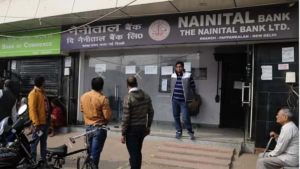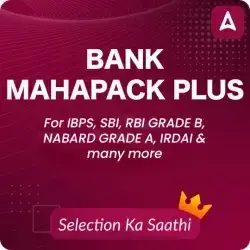Dear Readers,
The reasoning is a game of wits and presence of mind! Yes, it is true and it might seem as the greatest of the challenge after English Section’s surprises but yet this one can easily be dealt with. You just need correct practice and hardwire your brain to quickly make decisions of what to attempt and what to leave. And for same we are providing you questions of Reasoning Question and Answers. Solve these to Practice latest pattern reasoning question for bank exams.
Directions (1-5): Study the following information carefully and answer the questions given below:
A , B, C, D, E, F, G, and H are eight persons and they gets different monthly salary viz. $198, $225, $329, $127, $506, $279, $729, and $601 but not necessarily in the same order. They all are sitting in a circular table for discussion in which some of them are sitting either facing to center or opposite to center.
There are two persons sitting between A and H who gets $601. G sits second to left of A. G gets $729 and sits not adjacent to H. F gets $279 and sits third to left of A. F faces same direction as A. There are three persons sitting between F and B who gets $127. D gets $506 and sits not adjacent to B. E gets $329 and sits third to right of D. A does not get $225. A sits opposite to D. Both the immediate neighbor of A face same direction as A( Faces same direction means if A faces towards the center, then both neighbor of A faces towards the center and vice-versa). Immediate neighbor of D face opposite direction (Opposite direction means if one neighbor of D faces towards the center then other neighbor faces opposite to center and vice-versa). C sits immediate right of B, and both face opposite to center. The immediate neighbor of E face opposite direction (Opposite direction means if one neighbor of E faces towards the center then other neighbor faces opposite to center and vice-versa).
Q1. C gets which of the following amount?
(a) $198
(b) $127
(c) $225
(d) $601
(e) None of these
Q2. Who sits third to right of F?
(a) D
(b) H
(c) C
(d) A
(e) None of these
Q3. Who sits third to left of B?
(a) G
(b) H
(c) A
(d) C
(e) None of these
Q4. Four of the following five are alike in a certain way based on their seating positions and so form a group. Which of the following is different from the group?
(a) A
(b) C
(c) F
(d) D
(e) H
Q5. Which of the following statements is/are definitely false?
(a) E is the immediate neighbor of A
(b) G sits immediate right of F.
(c) D is the immediate neighbor of F.
(d) G sits immediate right of E.
(e) A gets $198
Directions (6-10): Each of the questions below consists of a question and two statements numbered I and II given below it. You have to decide whether the data provided in the statements are sufficient to answer the question. Read both the statements and give answer
(a) if the data in statement I alone are sufficient to answer the question, while the data in statement II alone are not sufficient to answer the question.
(b) if the data in statement II alone are sufficient to answer the question, while the data in statement I alone are not sufficient to answer the question.
(c) if the data either in statement I alone or in statement II alone are sufficient to answer the question.
(d) if the data in both statement I and II together are not sufficient to answer the question.
(e) if the data in both statement I and II together are necessary to answer the question.
Q6. M, J, K, N and D are sitting around a circular table facing the centre, who among them is sitting on the immediate right of K?
I. J is sitting between M and D and D is sitting on the immediate right of N.
II. J is second to the left of K and is the second to the right of N
Q7. What is T’s position with respect to W when T, W, R, J and M are sitting around a circle facing the centre?
I. R is second to the left of M and second to the right of W.
II. J is not an immediate neighbor of M.
Q8. How is Siddhant related to Romil.
I. Romil is the son of Ramesh, whose daughter is Siddhant’s mother.
II. Ramesh is the father of Romil and the grandfather of Siddhant.
Q9. Who amongst P, Q, R, S, T and U is the tallest?
I. P is the taller than R and T but not as tall as U, who is taller than Q and S.
II. R is the third in height in the ascending order and not as tall as U, P and Q, Q being tall than P but not the tallest.
Q10. What does ‘Sx’ mean in a code language?
I. ‘Pe Bo Sx’ means ‘have that cover’ and ‘Ki Bo Se Pe’ mean ‘apply that blue cover’ in the code language.
II. ‘Ne Ka Pa Sx’ means ‘have something to eat’ and ‘Si Li Sx Wa’ Means ‘have they gone wrong’ in the code language.
Directions (11-13): Question consists of five statements followed by five conclusions. Consider the given statements to be true even if they seem to be at variance with commonly known facts. Read all the conclusions and then decide which of the given conclusions does not logically follow from the given statements using all statements together.
Q11. Statements: Some telephone is nokia. All nokia is samsung. Some samsung is mobile. All mobile is xiomi. No xiomi is apple.
Conclusions:
(a) All telephone being mobile is a possibility.
(b) No mobile is apple.
(c) Some samsung is xiomi.
(d) Some nokia is mobile.
(e) Some telephone is samsung.
Q12. Statements: All 10 is 20. No 20 is 30. All 30 is 40. Some 30 is 50. All 50 is 60.
Conclusions:
(a) No 10 is 30.
(b) Some 40 is not 20.
(c) Some 30 is 60.
(d) Some 50 is 40.
(e) None of these.
Q13. Statements: Some ghost is man. All man is leader. No leader is doctor. Some doctor is teacher. All teacher is hero.
Conclusions:
(a) Some ghost is leader.
(b) Some ghost is not doctor.
(c) No man is doctor.
(d) Some hero is doctor.
(e) Some ghost is not leader.
Directions (14-15): In the questions below are given some conclusions followed by five set of statements. You have to choose the correct set of statements that logically satisfies given conclusions. Assume the given statements to be true even if they seem to be at variance from commonly known facts.
Q14. Conclusions: Some P is not A. Some F is A.
Statements:
(a) Some F is P. All P is D. No D is B. Some B is C. All C is A.
(b) Some F is B. All B is C. No C is D. Some D is A. All A is P.
(c) Some P is C. All C is F. No F is D. Some D is A. All A is B.
(d) Some P is B. All B is D. No D is A. Some A is C. All C is F.
(e) None of these.
Q15. Conclusions: Some A is B. No T is S.
Statements:
(a) Some A is Q. All A is B. No Q is S. Some S is T. All T is U.
(b) Some Q is B. Some B is T. All T is A. No A is S. All U is S.
(c) Some Q is U. All U is A. No A is B. Some B is S. All S is T.
(d) Some S is T. Some T is A. All A is Q. No A is B. All B is U.
(e) None of these.
You May also like to Read:





 GA Questions Asked In Nainital Bank Cler...
GA Questions Asked In Nainital Bank Cler...
 17th January, 2026 Current Affairs (Dail...
17th January, 2026 Current Affairs (Dail...
 Daily Current Affairs Quiz 17th January,...
Daily Current Affairs Quiz 17th January,...








